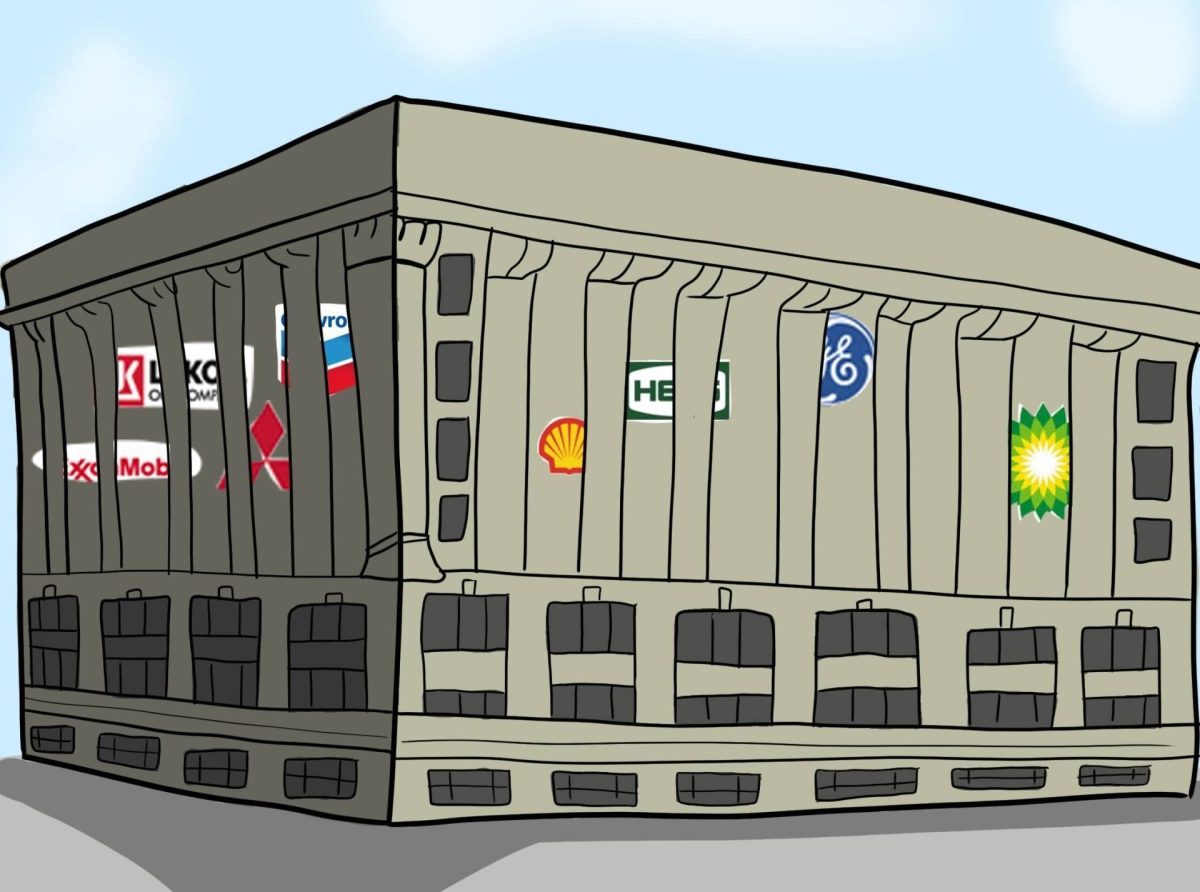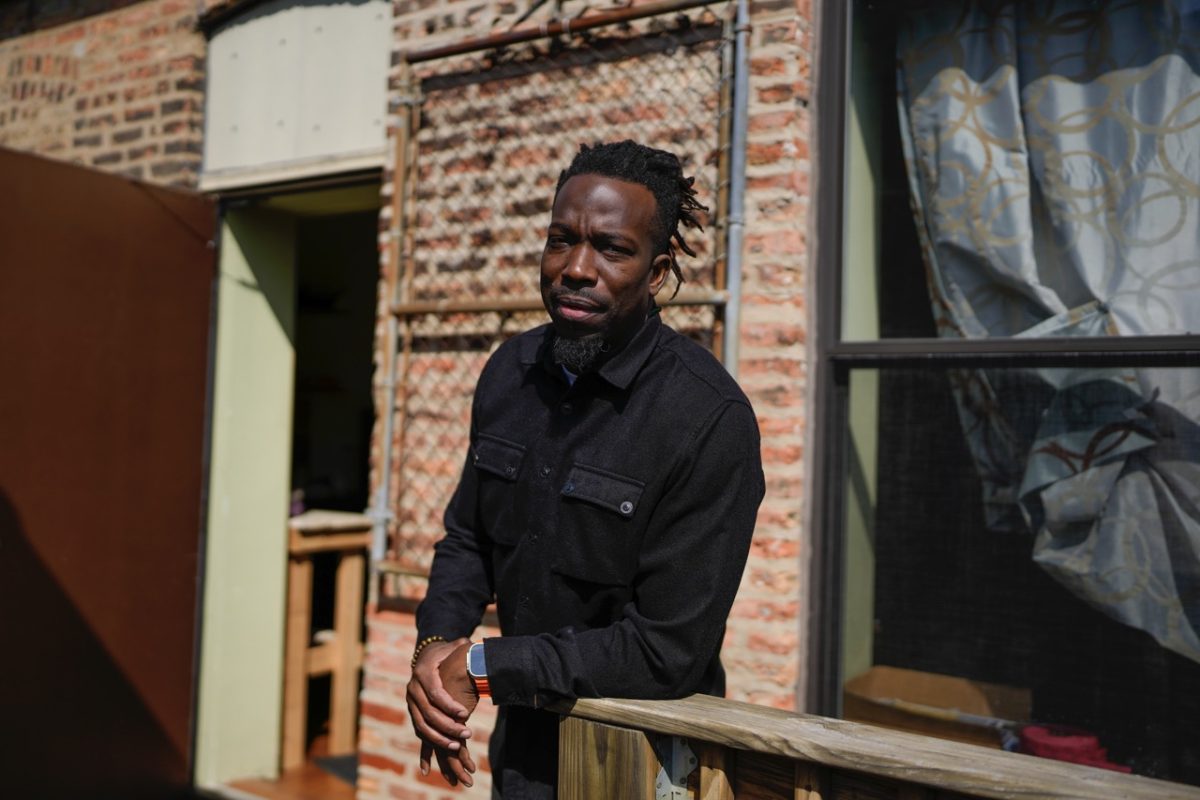We tend to largely view Facebook and Twitter as a recreational medium of ourselves, but the reality is that our online activity is spilling over into our professional sphere of work. Virtually everything we do online can or will affect our careers. Whether it is making a blog, participating in Twitter conversations, or having an online portfolio, creating virtual selves in our respective industries is the future.
“People always ask, ‘Oh, where’s your photography, do you have a website?'” said Aileen Keating, photography student at Columbia College. “For visual arts, it’s highly recommended.”
Having an online presence is vital for nearly every line of work. Everyone can create a LinkedIn account, which is basically a social media site that showcases your professional side. Artists and writers set up blogs and websites as an easy way to exhibit their work. Employees from all arenas buy personal domains to establish credibility and professionalism. Conversations are carried through company blogs and Twitter accounts, so that every so that prospective and current professionals from all industries can connect through them.
“News is bubbling up on Twitter and in online discussions that people are having before the mainstream news,” said Amy Merrick, a journalism adjunct professor at DePaul. “Employers want to know that you not only know these conversations, but that you’re participating in them. Being fluent in that language is really proactive.”
In today’s internet craze, a one-page paper resume is barely a reflection of one’s talents and accomplishments. For creative careers, a resume lacks the visibility of your work, yet you don’t want to send over a bulky package of papers. A sensible solution is to make an online portfolio. With a click of a mouse, a prospective employer can browse through your best handpicked work. It’s a professional way to organize and show your work, and can be easily and constantly updated. Unlike a resume, you can personalize the online portfolio through layout and design to let employers get a sense of your personality. You can then add the link to the bottom of your resume.
Director of Internships, Graciela Kenig, stresses the importance of having a web portfolio, stating, “It is a living document of not only what you do at the internship, but who you are as a professional and as a person.”
Students who take the Communications internship class are required to create an online portfolio by the end of the course. The medium allows you to post things like articles, or work you’ve done on radio or TV. You can easily upload and update as you acquire better work and delete the irrelevant. A web portfolio is not mainstream yet, but its value is increasingly appreciated.
“I know a lot of employers are still very impressed with that because it’s unexpected,” said Kenig. “It’s a real added bonus that separates you from the rest.”
Online presence extends beyond a professional website. As with anything you post on the web, be cautious of your Facebook or Twitter habits. If public, the employer has the freedom to browse through your information, and use any incriminating or distasteful information against your potential hiring. Not posting such ammo in the first place will relieve future headaches, but if you live to expose your party life online, keep it as private as possible. Facebook keeps this a tricky task to maintain, as it constantly changes its privacy settings.
“You have to remember that it’s very hard for anything to ever really disappear on the internet,” said Merrick. “You have to think of everything that goes up as something that can be seen by a potential employer.”
“A good number of employers will Google you,” added Kenig. “You don’t want anything on there with your image looking unprofessional. Nowadays, it’s very hard to separate the personal from the professional; sometimes you would want two different accounts.”
That’s not to say you should make yourself reclusive in the online world. Employers want to see that you are savvy with social media, so if you don’t have an active account, you are losing value in the workplace. Like Kenig suggested, it would be wise to have your personal Twitter account for rantings, and a separate squeaky-clean professional account to show employers you are current with the times.
Merrick also points out an integral part of our online identity that we tend to overlook:
“Students with e-mail addresses that are not appropriate when applying for a job-that’s one of the more important things to look at that students tend to miss.”
Merrick said that several of her students’ e-mails end up in her Spam box because of inappropriate addresses. When applying for jobs, send the e-mail from an account that has a simple and clean address, like your first initial and last name. If an employer can’t even receive your resume, how can you even be considered for the job?
DePaul has been very progressive in teaching students the importance of having an “online self” and provides ways to develop and refine your online presence. There are several courses offered that teach students how to create a webpage, and how to develop new media skills using interactive tools. Free workshops that delve into similar topics are available to students year-round, as they are listed at the Career Center. Students can take advantage of being on the brink of this cutting-edge form of communication.
Regardless of profession, from engineer to journalist, everyone can benefit from having an online presence and interacting with others.
“I think for everyone, monitoring the conversation that’s going on within their industry is really important,” said Merrick.
?

- April 22Treasure Trove: Crowd flocks to DePaul Quad looking for a good deal at spring flea market
- April 22Blue Demons’ bats struggle in one-hit loss to Wildcats
- April 21You should know less about Taylor Swift and more about your friends
- April 21Lollapalooza: Buzz or bust?
- April 21Biden Administration to mandate limitation of ‘forever chemicals’
- April 21Chicago sues fossil fuel industry over climate change
- April 21Here’s the Scoop: Lincoln Park ice cream shop back open for business
- April 21Titanic Memorial DeJamz
- April 21“The First Omen” review: How I wish this wasn’t an “Omen” movie
- April 21The 40th Anniversary of the Chicago Latino Film Festival Transcends Countries and Languages Through Diverse Storytelling






